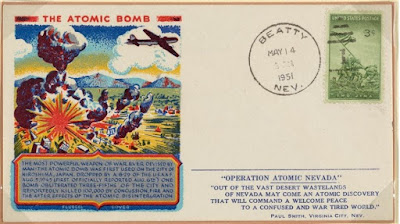On 16 July 1945, the United States detonated the world's first atomic bomb in a test code-named "Trinity." This historic event took place in the desert of New Mexico at the White Sands Proving Ground, near Alamogordo. The successful detonation marked a significant milestone in the development of nuclear weapons and was a pivotal moment in World War II and global military history.
The Trinity test was part of the top-secret Manhattan Project, a research and development undertaking during World War II that aimed to produce nuclear weapons. Led by physicist J. Robert Oppenheimer, the project brought together some of the world's greatest scientific minds to develop this new and powerful weapon.
At 5:29 a.m. on 16 July 1945, the bomb, a plutonium-based device nicknamed "The Gadget," was detonated. The explosion produced a blast equivalent to approximately 20,000 tons of TNT, creating a massive fireball and a mushroom cloud that rose about 40,000 feet into the air. The shockwave was felt over 100 miles away, and the bright flash of light was visible from much farther distances.
The success of the Trinity test demonstrated the devastating power of atomic energy and paved the way for the use of atomic bombs on Hiroshima and Nagasaki in August 1945. These bombings led to Japan's surrender and the end of World War II, but they also ushered in the nuclear age, raising ethical, moral, and geopolitical questions that continue to resonate to this day.
The Trinity test remains a significant event in history, symbolizing both the remarkable achievements of scientific progress and the profound implications of nuclear technology for humanity.

